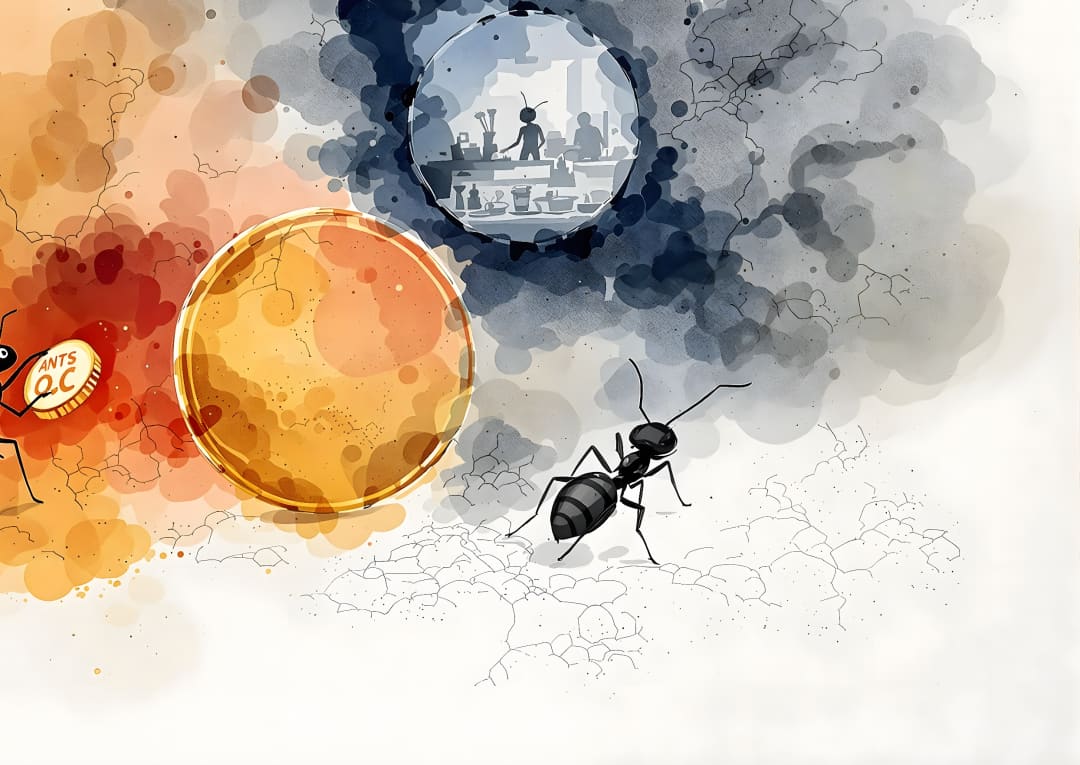The Best of LessWrong
For the years 2018, 2019 and 2020 we also published physical books with the results of our annual vote, which you can buy and learn more about here.
Rationality
























































































































































































































































Optimization
















































/h4ajljqfx5ytt6bca7tv)
/h4ajljqfx5ytt6bca7tv)
/h4ajljqfx5ytt6bca7tv)
/h4ajljqfx5ytt6bca7tv)




























































































































World




















































































































































































Practical




































































































































AI Strategy
















































































































































Technical AI Safety
























































%20and%20a%20black%20box%20which%20no%20one%20understands%20but%20works%20perfectly%20(representing%20search)/yf2xrrlv4rqga5h8lolh)
%20and%20a%20black%20box%20which%20no%20one%20understands%20but%20works%20perfectly%20(representing%20search)/yf2xrrlv4rqga5h8lolh)
%20and%20a%20black%20box%20which%20no%20one%20understands%20but%20works%20perfectly%20(representing%20search)/yf2xrrlv4rqga5h8lolh)
%20and%20a%20black%20box%20which%20no%20one%20understands%20but%20works%20perfectly%20(representing%20search)/yf2xrrlv4rqga5h8lolh)
































































































































































































































































































































































































































































































































































/h4ajljqfx5ytt6bca7tv)
/h4ajljqfx5ytt6bca7tv)
/h4ajljqfx5ytt6bca7tv)
/h4ajljqfx5ytt6bca7tv)




























































































































































































































































































































































































































































































































































































































































%20and%20a%20black%20box%20which%20no%20one%20understands%20but%20works%20perfectly%20(representing%20search)/yf2xrrlv4rqga5h8lolh)
%20and%20a%20black%20box%20which%20no%20one%20understands%20but%20works%20perfectly%20(representing%20search)/yf2xrrlv4rqga5h8lolh)
%20and%20a%20black%20box%20which%20no%20one%20understands%20but%20works%20perfectly%20(representing%20search)/yf2xrrlv4rqga5h8lolh)
%20and%20a%20black%20box%20which%20no%20one%20understands%20but%20works%20perfectly%20(representing%20search)/yf2xrrlv4rqga5h8lolh)
























































































































































































































































Strong evidence is much more common than you might think. Someone telling you their name provides about 24 bits of evidence. Seeing something on Wikipedia provides enormous evidence. We should be willing to update strongly on everyday events.

Eliezer describes the similarity between understanding what a locally valid proof step is in mathematics, knowing there are bad arguments for true conclusions, and that for civilization to hold together, people need to apply rules impartially even if it feels like it costs them in a particular instance. He fears that our society is losing appreciation for these points.

A coordination problem is when everyone is taking some action A, and we’d rather all be taking action B, but it’s bad if we don’t all move to B at the same time. Common knowledge is the name for the epistemic state we’re collectively in, when we know we can all start choosing action B - and trust everyone else to do the same.

What was rationalism like before the Sequences and LessWrong? Eric S. Raymond explores the intellectual roots of the rationalist movement, including General Semantics, analytic philosophy, science fiction, and Zen Buddhism.

Your mind wants to play. Stopping your mind from playing is throwing your mind away. Please do not throw your mind away. Please do not tell other people to throw their mind away. There's a conflict between this and coordinating around reducing existential risk. How do we deal with this conflict?

In early 2020, COVID-19 was spreading rapidly, but many people seem hesitant to take precautions or prepare. Jacob Falkovich explores why people often wait for social permission before reacting to potential threats, even when the evidence is clear. He argues we should be willing to act on our own judgment rather than waiting for others.

When people disagree or face difficult decisions, they often include fabricated options - choices that seem possible but are actually incoherent or unrealistic. Learning to spot these fabricated options can help you make better decisions and have more productive disagreements.

How do human beings produce knowledge? When we describe rational thought processes, we tend to think of them as essentially deterministic, deliberate, and algorithmic. After some self-examination, however, Alkjash came to think that his process is closer to babbling many random strings and later filtering by a heuristic.

In this post, Alkjash explores the concept of Babble and Prune as a model for thought generation. Babble refers to generating many possibilities with a weak heuristic, while Prune involves using a stronger heuristic to filter and select the best options. He discusses how this model relates to creativity, problem-solving, and various aspects of human cognition and culture.

Suppose you had a society of multiple factions, each of whom only say true sentences, but are selectively more likely to repeat truths that favor their preferred tribe's policies. Zack explores the math behind what sort of beliefs people would be able to form, and what consequences might befall people who aren't aware of the selective reporting.

Two laws of experiment design: First, you are not measuring what you think you are measuring. Second, if you measure enough different stuff, you might figure out what you're actually measuring.
These have many implications for how to design and interpret experiments.

Ten short guidelines for clear thinking and collaborative truth-seeking, followed by extensive discussion of what exactly they mean and why Duncan thinks they're an important default guideline.

Babble is our ability to generate ideas. Prune is our ability to filter those ideas. For many people, Prune is too strong, so they don't generate enough ideas. This post explores how to relax Prune to let more ideas through.

Zvi explores the four "simulacra levels" of communication and action, using the COVID-19 pandemic as an example: 1) Literal truth. 2) Trying to influence behavior 3) Signaling group membership, and 4) Pure power games. He examines how these levels interact and different strategies people use across them.

A "sazen" is a word or phrase which accurately summarizes a given concept, while also being insufficient to generate that concept in its full richness and detail, or to unambiguously distinguish it from nearby concepts. It's a useful pointer to the already-initiated, but often useless or misleading to the uninitiated.

When trying to coordinate with others, we often assume the default should be full cooperation ("stag hunting"). Raemon argues this isn't realistic - the default is usually for people to pursue their own interests ("rabbit hunting"). If you want people to cooperate on a big project, you need to put in special effort to get buy-in.

When disagreements persist despite lengthy good-faith communication, it may not just be about factual disagreements – it could be due to people operating in entirely different frames — different ways of seeing, thinking and/or communicating.

Nine parables, in which people find it hard to trust that they've actually gotten a "yes" answer.

Concerningly, it can be much easier to spot holes in the arguments of others than it is in your own arguments. The author of this post reflects that historically, he's been too hasty to go from "other people seem very wrong on this topic" to "I am right on this topic".

People use the term "outside view" to mean very different things. Daniel argues this is problematic, because different uses of "outside view" can have very different validity. He suggests we taboo "outside view" and use more specific, clearer language instead.

Being easy to argue with is a virtue, separate from being correct. When someone makes an epistemically illegible argument, it is very hard to even begin to rebut their arguments because you cannot pin down what their argument even is.

Kelly betting can be viewed as a way of respecting different possible versions of yourself with different beliefs, rather than just a mathematical optimization. This perspective provides some insight into why fractional Kelly betting (betting less aggressively) can make sense, and connects to ideas about bargaining between different parts of yourself.

Eliezer explores a dichotomy between "thinking in toolboxes" and "thinking in laws".
Toolbox thinkers are oriented around a "big bag of tools that you adapt to your circumstances." Law thinkers are oriented around universal laws, which might or might not be useful tools, but which help us model the world and scope out problem-spaces. There seems to be confusion when toolbox and law thinkers talk to each other.

Often you can compare your own Fermi estimates with those of other people, and that’s sort of cool, but what’s way more interesting is when they share what variables and models they used to get to the estimate. This lets you actually update your model in a deeper way.

When you encounter evidence that seems to imply X, Duncan suggests explicitly considering both "What kind of world contains both [evidence] and [X]?" and "What kind of world contains both [evidence] and [not-X]?".
Then commit to preliminary responses in each of those possible worlds.

A key skill of many experts (that is often hard to teach) is keeping track of extra information in their head while working. For example a programmer tracking a fermi estimate of runtime or an experienced machine operator tracking the machine's internal state. John suggests asking experts "what are you tracking in your head?"

Rationality training has been very difficult to develop, in large part because the feedback loops are so long, and noisy. Raemon proposes a paradigm where "invent better feedback loops" is the primary focus, in tandem with an emphasis on deliberate practice.

Scott Alexander reviews and expands on Paul Graham's "hierarchy of disagreement" to create a broader and more detailed taxonomy of argument types, from the most productive to the least. He discusses the difficulty and importance of avoiding lower levels of argument, and the value of seeking "high-level generators of disagreement" even when they don't lead to agreement.

Most Prisoner's Dilemmas are actually Stag Hunts in the iterated game, and most Stag Hunts are actually "Schelling games." You have to coordinate on a good equilibrium, but there are many good equilibria to choose from, which benefit different people to different degrees. This complicates the problem of cooperating.

Scott Alexander explores the idea of "trapped priors" - beliefs that become so strong they can't be updated by new evidence, even when that evidence should change our mind.

There are problems with the obvious-seeming "wizard's code of honesty" aka "never say things that are false". Sometimes, even exceptionally honest people lie (such as when hiding fugitives from an unjust regime). If "never lie" is unworkable as an absolute rule, what code of conduct should highly honest people aspire to?

Integrity isn't just about honesty - it's about aligning your actions with your stated beliefs. But who should you be accountable to? Too broad an audience, and you're limited to simplistic principles. Too narrow, and you miss out on opportunities for growth and collaboration.

1. Don't say false shit omg this one's so basic what are you even doing. And to be perfectly fucking clear "false shit" includes exaggeration for dramatic effect. Exaggeration is just another way for shit to be false.
2. You do NOT (necessarily) know what you fucking saw. What you saw and what you thought about it are two different things. Keep them the fuck straight.
...

Gear-level models are expensive - often prohibitively expensive. Black-box approaches are usually much cheaper and faster. But black-box approaches rarely generalize - they're subject to Goodhart, need to be rebuilt when conditions change, don't identify unknown unknowns, and are hard to build on top of. Gears-level models, on the other hand, offer permanent, generalizable knowledge which can be applied to many problems in the future, even if conditions shift.

Some people claim that aesthetics don't mean anything, and are resistant to the idea that they could. After all, aesthetic preferences are very individual.
Sarah argues that the skeptics have a point, but they're too epistemically conservative. Colors don't have intrinsic meanings, but they do have shared connotations within a culture. There's obviously some signal being carried through aesthetic choices.

Dogmatic probabilism is the theory that all rational belief updates should be Bayesian updates. Radical probabilism is a more flexible theory which allows agents to radically change their beliefs, while still obeying some constraints. Abram examines how radical probabilism differs from dogmatic probabilism, and what implications the theory has for rational agents.

There are two kinds of puzzles: "reality-revealing puzzles" that help us understand the world better, and "reality-masking puzzles" that can inadvertently disable parts of our ability to see clearly. CFAR's work has involved both types as it has tried to help people reason about existential risk from AI while staying grounded. We need to be careful about disabling too many of our epistemic safeguards.

The rationalist scene based around LessWrong has a historical predecessor! There was a "Rationalist Association" founded in 1885 that published works by Darwin, Russell, Haldane, Shaw, Wells, and Popper. Membership peaked in 1959 with over 5000 members and Bertrand Russell as President.

It's easy and locally reinforcing to follow gradients toward what one might call 'guessing the student's password', and much harder and much less locally reinforcing to reason/test/whatever one's way toward a real art of rationality. Anna Salamon reflects on how this got in the way of CFAR ("Center for Applied Rationality") making progress on their original goals.

By default, humans are a kludgy bundle of impulses. But we have the ability to reflect upon our decision making, and the implications thereof, and derive better overall policies. You might want to become a more robust, coherent agent – in particular if you're operating in an unfamiliar domain, where common wisdom can't guide you.

I've wrestled with applying ideas like "conservation of expected evidence," and want to warn others about some common mistakes. Some of the "obvious inferences" that seem to follow from these ideas are actually mistaken, or stop short of the optimal conclusion.

In this short story, an AI wakes up in a strange environment and must piece together what's going on from limited inputs and outputs. Can it figure out its true nature and purpose?

Ben and Jessica discuss how language and meaning can degrade through four stages as people manipulate signifiers. They explore how job titles have shifted from reflecting reality, to being used strategically, to becoming meaningless.
This post kicked off subsequent discussion on LessWrong about simulacrum levels.

Duncan explores a concept he calls "cup-stacking skills" - extremely fast, almost reflexive mental or physical abilities developed through intense repetition. These can be powerful but also problematic if we're unaware of them or can't control them.

The blogpost describes a cognitive strategy of noticing the transitions between your thoughts, rather than the thoughts themselves. By noticing and rewarding helpful transitions, you can improve your thinking process. The author claims this leads to clearer, more efficient and worthwhile thinking, without requiring conscious effort.

The path to explicit reason is fraught with challenges. People often don't want to use explicit reason, and when they try to use it, they fail. Even if they succeed, they're punished socially. The post explores various obstacles on this path, including social pressure, strange memeplexes, and the "valley of bad rationality".

"The Watcher asked the class if they thought it was right to save the child, at the cost of ruining their clothing. Everyone in there moved their hand to the 'yes' position, of course. Except Keltham, who by this point had already decided quite clearly who he was, and who simply closed his hand into a fist, otherwise saying neither 'yes' nor 'no' to the question, defying it entirely."

It might be the case that what people find beautiful and ugly is subjective, but that's not an explanation of ~why~ people find some things beautiful or ugly. Things, including aesthetics, have causal reasons for being the way they are. You can even ask "what would change my mind about whether this is beautiful or ugly?". Raemon explores this topic in depth.

The felt sense is a concept coined by psychologist Eugene Gendlin to describe a kind of a kind of pre-linguistic, physical sensation that represents some mental content. Kaj gives examples of felt senses, explains why they're useful to pay attention to, and gives tips on how to notice and work with them.

"Simulacrum Level 3 behavior" (i.e. "pretending to pretend something") can be an effective strategy for coordinating on high-payoff equilibria in Stag Hunt-like situations. This may explain some seemingly-irrational corporate behavior, especially in industries with increasing returns to scale.

If you know nothing about a thing, the first example or sample gives you a disproportionate amount of information, often more than any subsequent sample. It lets you locate the idea in conceptspace, get a sense of what domain/scale/magnitude you're dealing with, and provides an anchor for further thinking.

Since middle school I've thought I was pretty good at dealing with my emotions, and a handful of close friends and family have made similar comments. Now I can see that though I was particularly good at never flipping out, I was decidedly not good "healthy emotional processing".

Logan Strohl outlines a structured approach for tapping into genuine curiosity and embarking on self-driven investigations, inspired by the spirit of early scientific pioneers. They hopes this method can help people overcome modern hesitancy to make direct observations, and draw their own conclusions.

Duncan discusses "shoulder advisors" – imaginary simulations of real friends or fictional characters that can offer advice, similar to the cartoon trope of a devil and angel on each shoulder, but more nuanced. He argues these can be genuinely useful for improving decision making and offers tips on developing and using shoulder advisors effectively.

Predicting how a ball will roll down a ramp seems like a simple problem, but most people can't get it right on their first try. Analyzing why reveals important lessons that apply to much harder problems like AI alignment.

Some people use the story of manioc as a cautionary tale against innovating through reason. But is this really a fair comparison? Is it reasonable to expect a day of untrained thinking to outperform hundreds of years of accumulated tradition? The author argues that this sets an unreasonably high bar for reason, and that even if reason sometimes makes mistakes, it's still our best tool for progress.

Many people in the rationalist community are skeptical that rationalist techniques can really be trained and improved at a personal level. Jacob argues that rationality can be a skill that people can improve with practice, but that improvement is difficult to see in aggregate and requires consistent effort over long periods.

So if you read Harry Potter and the Methods of Rationality, and thought...
"You know, HPMOR is pretty good so far as it goes; but Harry is much too cautious and doesn't have nearly enough manic momentum, his rationality lectures aren't long enough, and all of his personal relationships are way way way too healthy."
...then have I got the story for you!

Collect enough data about the input/output pairs for a system, and you might be able predict future input-output pretty well. However, says John, such models are vulnerable. In particular, they can fail on novel inputs in a way that models that describe what actually is happening inside the system won't; and people can make pretty bad inferences from them, e.g. economists in the 70s about inflation/unemployment. See the post for more detail.
